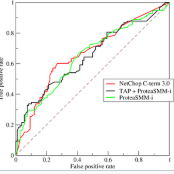We propose to integrate weapon system features (such as weapon system manufacturer, deployment time and location, storage time and location, etc.) into a parameterized Cox-Weibull [1] reliability model via a neural network, like DeepSurv [2], to improve predictive maintenance. In parallel, we develop an alternative Bayesian model by parameterizing the Weibull parameters with a neural network and employing dropout methods such as Monte-Carlo (MC)-dropout for comparative purposes. Due to data collection procedures in weapon system testing we employ a novel interval-censored log-likelihood which incorporates Monte-Carlo Markov Chain (MCMC) [3] sampling of the Weibull parameters during gradient descent optimization. We compare classification metrics such as receiver operator curve (ROC) area under the curve (AUC), precision-recall (PR) AUC, and F scores to show our model generally outperforms traditional powerful models such as XGBoost and the current standard conditional Weibull probability density estimation model.
翻译:我们建议通过DeepSurv [2] 等神经网络,将武器系统特征(如武器系统制造商、部署时间和地点、储存时间和地点等)纳入一个参数化的Cox-Weibull[1][1]可靠性模型,以改进预测性维护;同时,我们开发一种替代的Bayesian模型,将Weibull参数与神经网络进行参数化,并采用蒙特-卡洛(MC)投射等辍学方法进行比较;由于武器系统测试中的数据收集程序,我们采用了一种新颖的间歇性对日志相似性,其中包括Monte-Carlo Markov链(MC)[3]在梯度下降优化期间对Weibull参数进行取样。我们比较了接收器操作器曲线(AUSC)、精确-回调(PR) AUC)和F分数等分类指标,以显示我们的模型一般超过XGBoost等传统强型模型和目前的标准条件Wibull概率估计模型。</s>










